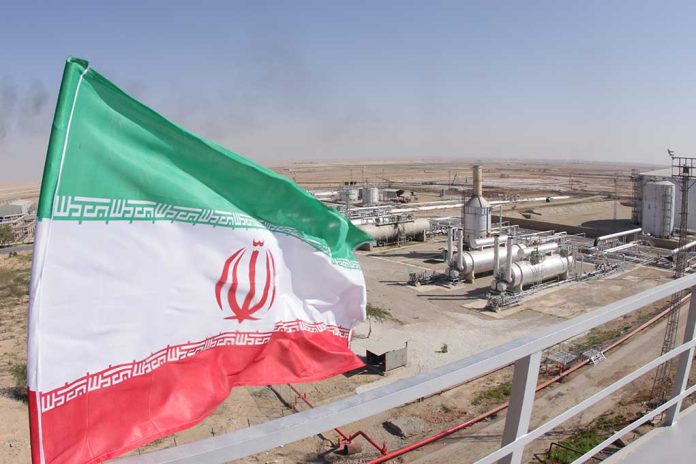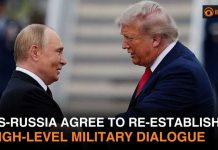
China has firmly stood behind Iran following Israel’s aggressive strikes on Iranian military and nuclear facilities, deepening a strategic alliance aimed at countering U.S. global influence.
Key Takeaways
- China expressed “deep concern” over Israel’s “Operation Rising Lion” strikes targeting Iran’s nuclear facilities and killing senior military officials, including IRGC commander Hossein Salami.
- Beijing has firmly opposed any violation of Iran’s sovereignty while refusing to condemn Iran’s nuclear ambitions, positioning itself as Tehran’s key diplomatic defender.
- The China-Iran relationship is cemented by a 25-year cooperation agreement signed in 2021, covering energy, trade, security, and infrastructure partnerships.
- Despite U.S. sanctions, China remains Iran’s largest oil buyer through covert channels and barter deals, undermining Western pressure tactics.
- Chinese leader Xi Jinping has personally reinforced support for Iran’s sovereignty and development, demonstrating China’s commitment to strengthening this strategic partnership.
China’s Diplomatic Shield for Iran
Following Israel’s extensive military operation against Iran, China quickly positioned itself as Tehran’s diplomatic defender on the world stage. Foreign Ministry spokesperson Lin Jian issued a statement expressing serious concerns about Israel’s actions. “China is highly concerned about Israel’s attacks on Iran and deeply worried about the potential serious consequences of these actions,” said Lin Jian. China has taken a firm stance against what it describes as violations of Iranian sovereignty, refusing to condemn Iran’s nuclear program while criticizing Israel’s pre-emptive strikes.
The Israeli operation, dubbed “Rising Lion,” targeted Iran’s Natanz nuclear facility and ballistic missile arsenal, reportedly killing several senior officials including Revolutionary Guard commander Hossein Salami. Prime Minister Benjamin Netanyahu justified the strikes as necessary to prevent an imminent Iranian attack and to impede Tehran’s nuclear weapons development. Despite international concerns about Iran’s nuclear ambitions, China has consistently shielded Iran from criticism while deepening bilateral ties.
Chinese officials have repeatedly emphasized their opposition to any actions that escalate regional tensions, with Lin Jian stating that “China opposes any violation of Iran’s sovereignty, security, and territorial integrity, and opposes actions that escalate tensions and expand the conflict.” This diplomatic positioning allows China to present itself as a peacemaker while simultaneously strengthening its alliance with Iran against Western interests.
Strategic Partnership Against U.S. Influence
China’s support for Iran extends far beyond diplomatic rhetoric, forming part of a calculated strategy to counter American geopolitical influence. In 2021, the two nations formalized their relationship through a comprehensive 25-year cooperation agreement worth an estimated $400 billion. This landmark deal encompasses trade, energy resources, infrastructure development, and security partnerships, creating a powerful economic and strategic alliance that directly challenges Western sanctions regimes.
“China is reportedly ‘deeply concerned‘ after its close ally Iran suffered the loss of key terrorist leaders following Israel’s massive strikes on Iran’s nuclear facilities,” reports indicate the serious nature of Beijing’s investment in its relationship with Tehran.
Despite U.S.-led international sanctions designed to isolate Iran economically, China has remained Tehran’s largest oil buyer, using covert channels and barter arrangements to circumvent Western restrictions. This economic lifeline has proven crucial for Iran’s survival under sanctions, while providing China with discounted energy resources to fuel its economy. Intelligence reports further suggest that China supplies Iran with missile components, drone technology, and cybersecurity capabilities, though both governments publicly deny these allegations.
Military Escalation and China’s Response
Following Israel’s strikes, Iran launched over 100 drones toward Israeli territory in retaliation, promising an even more significant response. President Masoud Pezeshkian vowed to “strongly take action” against Israel, while the Israeli military mobilized troops for border protection and intercepted most of the incoming drones. This rapid escalation prompted China to issue warnings to its citizens in Iran, advising them to “closely monitor developments, remain calm, stay vigilant, and be fully prepared for potential attacks involving missiles, rockets, or drones.”
Chinese leader Xi Jinping has personally reinforced Beijing’s commitment to Iran, meeting with President Pezeshkian and expressing unequivocal support for Iran’s sovereignty and development rights. Xi has emphasized China’s commitment to strengthening relations with neighboring countries, particularly those that share its strategic goal of reducing American influence in Asia and the Middle East. President Trump has urged Iran to negotiate directly with the United States on nuclear matters, warning that Israel’s attacks could intensify without diplomatic progress.
Economic and Security Implications
The deepening China-Iran partnership has significant implications for global security and economic structures. By providing Iran with economic alternatives to Western markets, China effectively undermines the leverage of U.S. sanctions policies. China’s continued purchase of Iranian oil, estimated at over 1.5 million barrels daily despite sanctions, has given Tehran breathing room to resist Western pressure while advancing its nuclear and military capabilities.
“China opposes any violation of Iran’s sovereignty, security, and territorial integrity, and opposes actions that escalate tensions and expand the conflict,” said Lin Jian, Chinese Foreign Ministry spokesperson.
Beijing’s broader strategy appears focused on creating a network of partnerships with nations that share its anti-Western orientation, including Russia, North Korea, and Iran. These relationships help China challenge American dominance in key regions while securing access to resources and markets. The Israel-Iran conflict provides China with an opportunity to position itself as a responsible global power while simultaneously supporting a key anti-Western ally, demonstrating the sophisticated nature of Chinese foreign policy in an increasingly multipolar world order.













